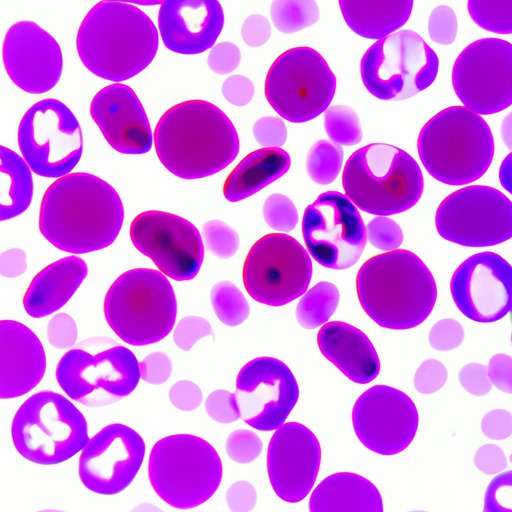I. Introduction
Blood is a fundamental component of our bodies that helps us sustain our lives. It is responsible for carrying nutrients and oxygen, removing waste products, transporting hormones, and regulating body temperature. Blood also has medical and historical significance that has played an important role in our understanding of the human body and our development as a society.
This article aims to provide a comprehensive overview of the biological, medical, and historical significance of blood, including its major components and functions, its role in medical treatment, its connection to health and wellness, and its historical and cultural significance. Readers will gain an understanding of why blood is critical to our survival and how it influences our health and well-being.
II. Explaining the Biological Necessity of Blood
Blood is made up of four main components: red blood cells, white blood cells, platelets, and plasma. Each component plays an essential role in the body’s overall functions.
Red blood cells transport oxygen from the lungs to the body’s tissues, allowing us to breathe and function properly. White blood cells fight off infection and help maintain a healthy immune system. Platelets help the blood to clot, preventing excessive bleeding when we get injured. Plasma is a yellowish fluid that transports nutrients, hormones, and proteins throughout the body.
III. The Role Blood Plays in Medical Treatment
Blood transfusions are necessary for patients with certain medical conditions such as anemia, hemophilia, and leukemia. These patients require additional red and white blood cells and platelets in their bloodstreams to help them fight off infections and to stop excessive bleeding.
Blood donations are also essential in supporting medical treatments. There are many medical procedures where blood transfusions are necessary, including surgeries, cancer treatments, and emergency interventions to save a person’s life.
IV. Blood’s Connection to Health and Wellness
Nutrition and overall lifestyle choices, including diet and exercise, have an impact on blood health. A healthy diet that includes iron-rich foods such as red meat, poultry, fish, beans, and vegetables can help prevent anemia. Regular exercise can improve cardiovascular health, which in turn can lead to better blood flow and increased oxygenation.
Various diseases, such as diabetes and hypertension, can also impact blood health. These conditions can lead to damage to the blood vessels, which can decrease blood flow and lead to numerous complications.
People can take steps to maintain their blood health by living a healthy lifestyle, getting regular check-ups, and following their doctor’s advice when it comes to managing chronic conditions.
V. An Historical Perspective of Blood
Blood has been significant in many cultures throughout history. In ancient Greek, Roman, and Egyptian cultures, blood was associated with life force, and it featured prominently in religious symbolism.
Medical practices related to blood have evolved over time, from the ancient practice of bloodletting to modern transfusions and vaccinations. Cultural beliefs regarding blood have changed as well, with the idea of donating blood becoming a commonplace practice in many societies.
VI. Blood’s Connection to Infectious Diseases
Certain infectious diseases, such as HIV and hepatitis, can be transmitted through blood. To protect patients from these diseases, blood donations are screened and tested before transfusions, with any contaminated blood discarded. Donors who are at risk are also disqualified from giving blood, with anyone who has ever used intravenous drugs or had sex with someone who has used them being ineligible to donate blood.
VII. Conclusion
Blood is essential to human life and has played a significant role in our medical and cultural history. Understanding the functions of blood, its connections to health and wellness, and the medical procedures it facilitates can help people to lead healthier lives and support medical treatments where necessary. Through donating blood and supporting measures to prevent the spread of infectious diseases, we can all contribute to the health and well-being of people in need.
